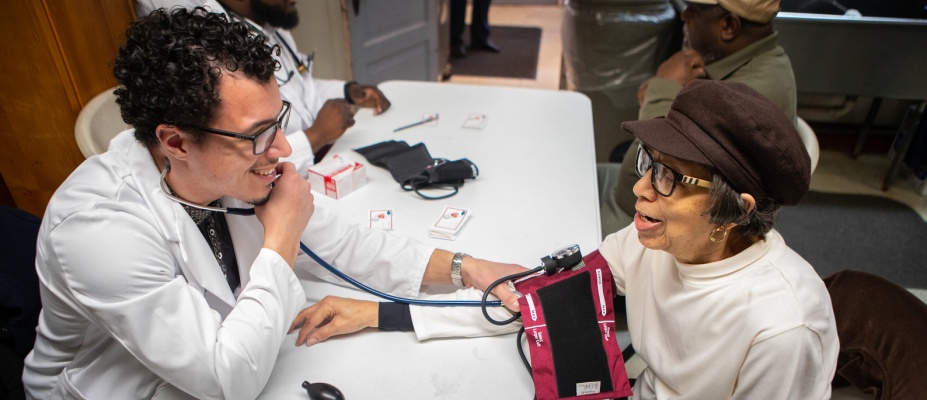Accomplishments

Through its Top 25 Ambition, UB is advancing its mission-driven priorities with the aim of making a profound difference on communities locally, nationally and globally.
To that end, UB's recent accomplishments include the following:
Accomplishments
Flagship University Designation
- In January 2022, Governor Kathy Hochul designated UB a flagship university of the SUNY system
- Flagship universities set the standard to which other institutions aspire
- Although UB has long been considered a de facto flagship of the SUNY system, this formal designation poises UB for even greater success in:
- attracting and retaining the very best faculty, students, business and industry to the region
- securing even more federal research funding
- catalyzing further growth and innovation across business and industry
AI Institute for Exceptional Education
- $20 million National Science Foundation grant to establish a national AI institute
- This insitute will develop advanced artificial intelligence solutions that identify and assist young children with speech and/or language processing challenges
- Interdisciplinary team will seek to:
- address the nationwide shortage of speech-language pathologists
- provide services to children at an increased risk of falling behind in their academic and socio-emotional development
- Grant awarded in January 2023
Clinical and Translational Science Award Renewal
- $21.7 million award from the National Institutes of Health is enabling UB researchers to further investigations into the most pressing health problems and catalyze critical medical breakthroughs into enhanced patient care
- Five-year grant builds on the successes UB achieved with the original, $15 million NIH award, including:
- tripling the number of clinical trials UB researchers perform
- doubling the number of underrepresented minorities who participate in UB clinical trials
- With the new grant, UB is:
- engaging with Buffalo residents to reduce health disparities through UB's Community Health Equity Research Institute
- developing Community Engagement Studios where researchers meet with patients to better design studies
- developing electronic means to better identify and recruit patients for clinical trials
Department of Indigenous Studies
- With a $3.2 million grant from The Andrew W. Mellon Foundation, UB's College of Arts and Sciences has created a new department focused on:
- humanities-centered research
- educational programs
- addressing key issues central to indigenous life in the region
- Anchors an Indigenous Research Center and serves as a hub for broader indigenous inclusion
- Builds upon UB's 50-year tradition of indigenous scholarship
- Grant awarded in 2020
Community Health Equity Research Institute
- A community partnership dedicated to advancing understanding of the root causes of health disparities and developing research-based solutions
- Focused on health equity across the predominantly African-American neighborhoods encompassing Buffalo's East Side
- UB faculty from 10 academic units involved
- Community-based participatory research approach engages the community in:
- driving the research agenda
- participating in the design and conduct of studies
- benefiting from the results
- Launched in December 2019
- Harnessing UB's AI capabilities to advance human-machine systems that can address complex cognitive tasks.
- Aims to customize treatments to improve patient outcomes and to develop the next generation of autonomous and intelligent transportation systems.
- Also focused on examining AI’s cultural, social and economic impacts.
- Launched in September 2018
- Transformed research institute integrates clinical care, research and education to combat substance use disorders
- Multidisiplinary approach with a focus on combating the opiate addiction epidemic
- Faculty from seven UB decanal units and the College of Arts & Sciences involved
- Renamed in 2018, with CRIA research scientists joining the departments of psychiatry, pharmacology and toxicology and psychology to collaborate more extensively with UB faculty
Women's Health Initiative Extension
- $8.1 million in funding from the National Institutes of Health to continue the nationwide study on the health outcomes of postmenopausal women
- With this third extension of the Women's Health Initiative (WHI) through 2027, the WHI will have continuous funding for 35 years
- Approximately 70,000 women in the region are still active participants in the study 25 years later
- The most significant outcome of the WHI is the finding that hormone therapy led to an increased risk of a number of conditions including coronary heart disease, stroke, breast cancer and blood clots